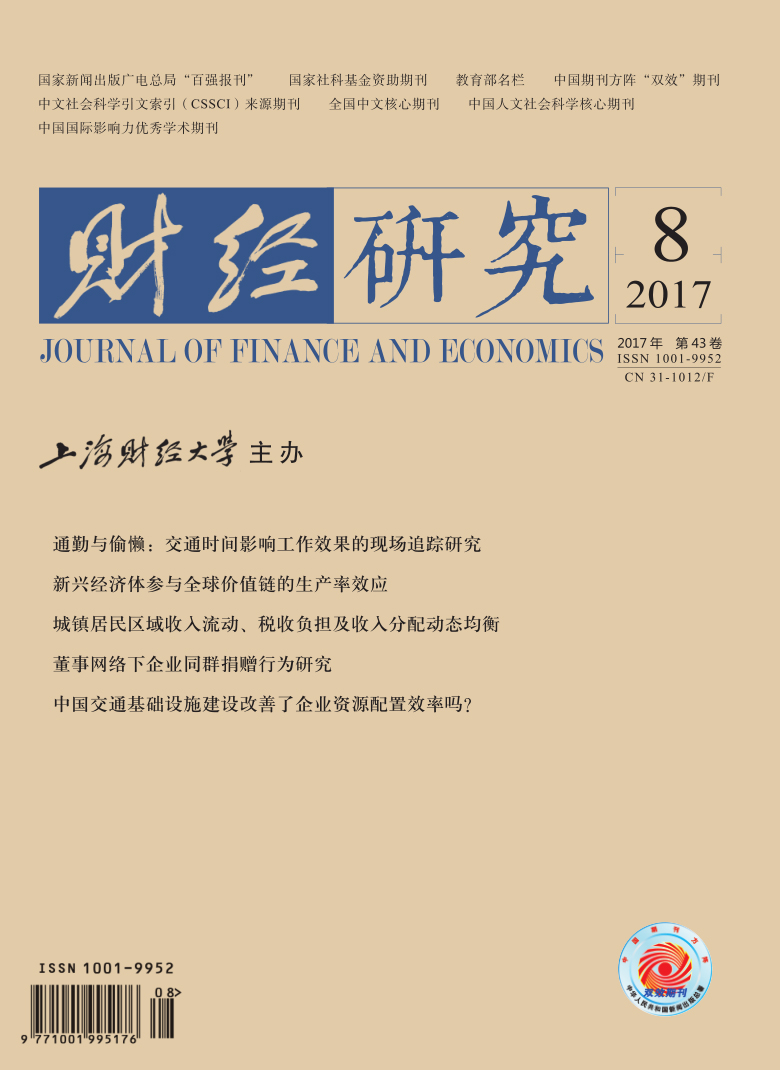Rising prices, but stable wages. The rigidity of wages means that the increase in inflation leads to a decline in real wages in the short term, an increase in employment and an increase in output. If the employment effect dominates, moderate inflation will help to improve labor income share. Using the stochastic pricing model of Calvo (1983), this paper empirically examines the impact of inflation on labor income share in the short term. By using general-to-specific dynamic measurement method, this paper confirms the conjecture: in the short term, an increase in inflation by 1% can lead to an average increase in labor share by 0.05%; the long-term estimate of this effect is reduced by 0.03%. It shows that the rigidity of labor wage adjustment may be one of the important short-term factors in the decline of China's labor income share.
 / Journals / Journal of Finance and Economics
/ Journals / Journal of Finance and EconomicsJournal of Finance and Economics
LiuYuanchun, Editor-in-Chief
ZhengChunrong, Vice Executive Editor-in-Chief
YaoLan BaoXiaohua HuangJun, Vice Editor-in-Chief
Rising Prices, Stable Wages: A Study on the Influence of Inflation on Labor Income Share under Price Rigidity
Journal of Finance and Economics Vol. 43, Issue 08, pp. 56 - 68 (2017) DOI:10.16538/j.cnki.jfe.2017.08.005
Abstract
References
Abstract
Keywords
Cite this article
Ding Congming, Xie Fenglin, Lei Yu. Rising Prices, Stable Wages: A Study on the Influence of Inflation on Labor Income Share under Price Rigidity[J]. Journal of Finance and Economics, 2017, 43(8): 56–68.
Export Citations as:
For
ISSUE COVER
RELATED ARTICLES




 7793
7793  5535
5535

